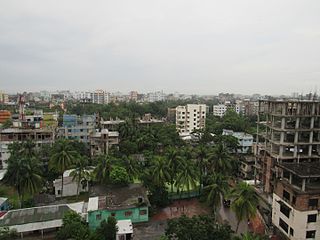Duties and responsibilities
The primary duties of the divisional commissioner include supervising, monitoring, and controlling the activities of District Commissioners. The divisional commissioner plays a key role in implementing the functions of the central government at the divisional level.
- Transfer and posting
The divisional commissioner handles the transfer and posting of assistant commissioners, assistant commissioners (land), and upazila executive officers (UNOs) across all districts and upazilas under his division. He also transfers inter-district land officers such as sub-assistant land officers, Kanungos, and surveyors.
- Supervision of administrative activities
Coordinating the activities of various departments at the divisional level is one of the fundamental responsibilities of the divisional commissioner. He supervises the activities of district commissioners, UNOs, assistant commissioners (land), and other officials and employees of his office, providing necessary guidelines and regularly updating the government on related progress and evaluations.
- Revenue matters
The divisional commissioner directs and controls revenue collection in the division. As the chief revenue officer, he oversees all activities related to revenue collection. He also hears appeals against orders issued by district commissioners on revenue matters.
- Law and order
According to the 1943 Police Regulations, the divisional commissioner exercises general control over the local police department through the district magistrate. However, he cannot interfere in the internal administration of the police department.
- Monthly meetings
The divisional commissioner chairs monthly task force meetings, divisional law and order meetings, divisional revenue conferences, and development coordination meetings at the divisional level. Quarterly meetings with the chief executive officers of district councils are also held under his leadership.
- Divisional Election Board
By virtue of his position, the divisional commissioner serves as the chairman of the Divisional Election Board. This board oversees the recruitment process for third and fourth-class employees in his office, the DIG's office, the police commissioner's office, district commissioners' offices, and the superintendent of police's offices within the division.
- Inspection
The divisional commissioner regularly inspects the offices of district commissioners, UNOs, assistant commissioners (land), and executive magistrates within his division.
- Protocol
The divisional commissioner is the chief protocol officer at the divisional level. He assumes the responsibility of chief protocol officer during visits by the President, Prime Minister, or Chief Adviser.
- Appeal Court operations
The divisional commissioner is the appellate authority for revenue cases, land mutation cases, and national and local government elections. He resolves related appeals.
- Investigation of complaints
In addition to supervising BCS (Administration) cadre officers, the divisional commissioner also investigates complaints against any individual or organization.
- Relief and disaster management
The commissioner oversees the allocation of relief materials in districts and upazilas under his division. He also monitors rescue operations during disasters.
- State confidential matters
The commissioner ensures the security of the President and Prime Minister, manages cipher and decipher documents, and takes action based on received cipher messages. He ensures the safe custody of confidential documents and sends periodic confidential reports to the government.
- Other responsibilities
The divisional commissioner monitors the progress of implementing priority projects of the Prime Minister and sends related reports. He participates in monthly coordination and review meetings organized by various ministries/departments. He also chairs the divisional monitoring committee, which ensures administrative support for witnesses in cases pending in the speedy trial tribunals. Additionally, the commissioner implements decisions made by the government regarding the celebration of national and international days. He organizes tripartite meetings to resolve audit objections at the divisional commissioner’s office and represents the divisional procurement evaluation committee under the Public Procurement Regulation-2013. He chairs the divisional committee on internal food grain collection and the divisional selection committee for primary education awards and national environmental awards. [5]













